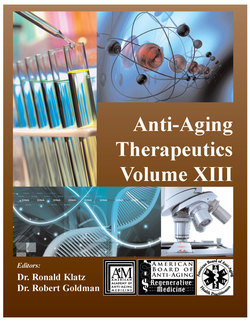Читать книгу Anti-Aging Therapeutics Volume XIII - A4M American Academy - Страница 46
На сайте Литреса книга снята с продажи.
Resveratrol and Cardiovascular Health
ОглавлениеThe original “French paradox,” a term from the ABC television show 60 Minutes in 1991, was based on the epidemiologic observation that citizens of southern France enjoy low rates of cardiovascular disease despite a lifestyle renowned for flaunting known risk factors such as smoking and high fat intake. The proposed explanation was their high level of wine consumption, a hypothesis initially met with much skepticism but now well-accepted. In fact, the idea was not new, having been documented as early as 19797, and wine consumption would later be recognized as a previously overlooked but central component of the Mediterranean diet. As a result of this new focus on the potential healthful properties of wine as a food, attention turned to the question of what chemical constituents of wine were responsible. Resveratrol, in addition to other wine phenolics, has been found to be involved in a number of specific processes that counter atherosclerotic disease.8
A primary action of resveratrol is up-regulation of nitric oxide (NO), a vasodilator. There is some clinical evidence that resveratrol produces a short-term relaxation of the arterial wall and lowers blood pressure after oral administration. Additionally, production of the pro-inflammatory cytokine endothelin-1 is suppressed, which helps retard plaque formation in the vessel wall. COX inhibition similarly slows plaque progression due to suppression of eicosanoid synthesis. Impairment of platelet aggregation via COX inhibition also provides an explanation for the clinical finding that myocardial infarction and stroke are less likely to occur if wine has been consumed within the previous 24 hours. Furthermore, resveratrol’s antioxidant capacity serves to lower levels of oxidized low-density lipoprotein. (It should be pointed out however that alcohol independently improves the HDL/LDL ratio so the beneficial effects of wine cannot be attributed solely to its polyphenol components.)
